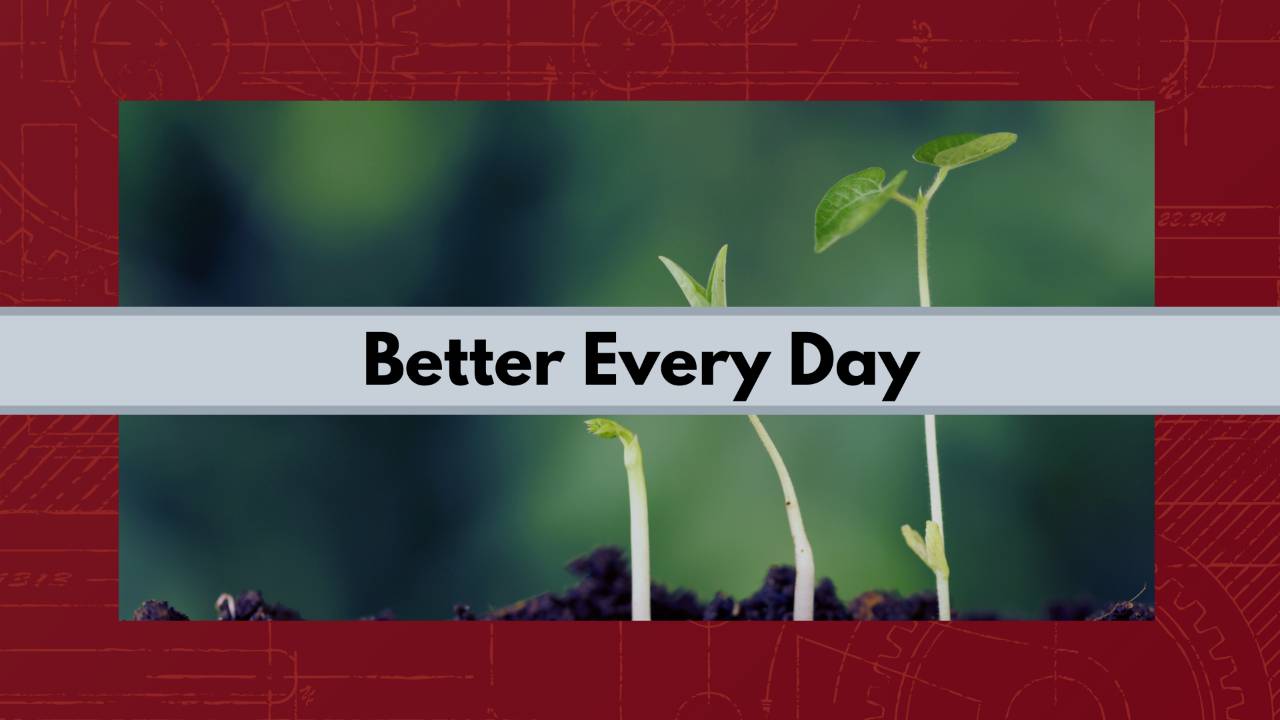Better Every Day
Your 52-Week Journey for Peak Performance
Whether you're an entrepreneur, an artist, a student, or someone just passionate about lifelong learning and self-improvement, "Better Every Day" is curated to fuel your fire. If you believe in the power of consistency and value the gratification that comes from personal growth, this journey is for you.
|
Welcome to the first lesson of 'Better Every Day: A 52-Week Journey to Peak Performance'! In this lesson, we will discuss why making small consistent improvements is the key to long-term improvements.
When it comes to personal development and peak performance, the allure of radical transformation is ever-present. We often hear tales of individuals who experienced dramatic overnight successes. However, the most sustainable path to success is often through small, consistent, and incremental improvements. Here’s why:
1. Compound Growth: The Magic of Consistency
Much like the principle of compound interest in finance, small improvements add up over time and can lead to exponential growth. James Clear, in his best-selling book "Atomic Habits," outlines how a 1% improvement each day can lead to a 37 times improvement over a year. It's the repetition and consistency of these small actions that ultimately lead to significant results.
2. Reducing Overwhelm and Burnout
Attempting significant changes in a short period can be overwhelming and unsustainable. Focusing on small steps creates a manageable workload, reducing the likelihood of burnout. As Robert Maurer mentions in "The Kaizen Way," using tiny steps helps bypass the brain's fear and resistance to change, making the process of improvement smoother and more consistent.
3. Building Resilience and Flexibility
By focusing on small changes, individuals can more easily adapt to unforeseen challenges. If an approach isn't working, it’s easier to pivot and adjust when you're dealing with a minor tweak rather than a major overhaul. This builds resilience and promotes a growth mindset, as described by Carol Dweck in "Mindset: The New Psychology of Success".
4. Enhancing Motivation
Celebrating small wins can boost motivation and morale. As Teresa Amabile and Steven Kramer note in "The Progress Principle," even minor advancements in meaningful work can enhance motivation, leading to further productivity and creativity. By recognizing and celebrating each incremental improvement, individuals feel more motivated to continue their journey.
5. Mastery through Repetition
True mastery of any skill comes from deliberate practice and repetition. By focusing on incremental improvements, individuals can hone specific aspects of a skill, leading to overall mastery over time. This concept is well-articulated by Anders Ericsson in his research on peak performance, later popularized by Malcolm Gladwell as the "10,000-hour rule".
In the world of instant gratification, it's tempting to seek rapid transformation. But real, lasting success often comes from the dedication to making small, consistent improvements daily. It’s the accumulation of these minor advancements, compounded over time, that leads to profound growth and achievement.
Over the next year, you can expect to receive weekly lessons focused on actionable strategies designed to help you make small and consistent changes in every facet of your life.
Let's get started!!
References:
Amabile, T., & Kramer, S. J. (2011). The progress principle: Using small wins to ignite joy, engagement, and creativity at work. Harvard Business Review Press.
Clear, J. (2018). Atomic habits: An easy & proven way to build good habits & break bad ones. Avery.
Dweck, C. (2006). Mindset: The new psychology of success. Random House.
Ericsson, A., & Pool, R. (2016). Peak: Secrets from the new science of expertise. Eamon Dolan/Houghton Mifflin Harcourt.
Maurer, R. (2014). The kaizen way: One small step can change your life. McGraw Hill Professional.
Key Actions [Pick one]:

1% Improvement Journal
At the end of each day, identify one thing you did to make a small improvement in any area of your life.

Celebration Jar
Get an empty jar and every time you make a small improvement or achieve a tiny milestone, write it down and put it in the jar. At the end of a month / year, read through your achievements and acknowledge how much you have accomplished.

Deliberate Skill Focus
Choose a skill or area of knowledge that you want to improve. Dedicate a specific period of time (even just 15 minutes) each day or week where you focus solely on practicing or learning that skill. Track your progress over time.
ONLINE COURSE
Resolution Reset Masterclass
We're excited to announce that our 12-week neuroscience-based goal setting and habit-building program will be re-released by January 1, 2024.
Learn More
Not a member of the 'Better Every Day' program?
Join our FREE 52-week program where we will send you exclusive content and training delivered to your inbox each week.
Get Started Now!!



